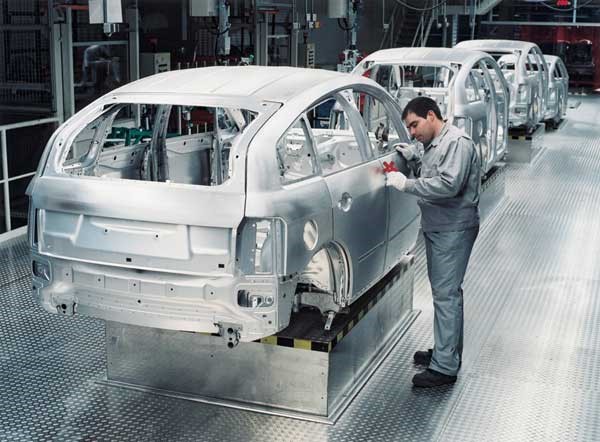您想继续阅读英文文章还
是切换到中文?
是切换到中文?

THINK ALUMINIUM THINK AL CIRCLE

The car manufacturing process could be completed with much more reduced cost, eco-friendly, and rapid with new aluminium component production state-of-art technology.

Typically, aluminium is essential to reducing a car's weight, which also aids in lowering fuel consumption. The modern vehicle contains significant amounts of aluminium, and the use of metal is increasing.
The casting technology was developed by the Norwegian aluminium giant Hydro and is performed under vacuum conditions.
The ability to cast aluminium bolts with small diameters and excellent surface qualities has allowed the metal to be employed directly in producing parts like automotive suspension components. Cast material reduces production waste while lowering costs, improving efficiency, and improving the environment when creating aluminium car parts.
A modern automotive component production line consists of several production phases, such as casting, heat treatment, extrusion, and the final forging or shaping operation that guarantees the final product is fashioned with the desired shape.
Siri Marthe Arbo, a researcher with SINTEF, said, “This casting technology allows for the removal of an entire process step in the production line. Our process effectively removes the extrusion stage.”
“This is a game-changer in manufacturing aluminium car components because the process is quicker and cheaper without the extrusion stage.”
Extruded bolts are frequently used in the industry to create suspension components. This procedure is expensive, time- and energy-intensive, producing a lot of trash. The new casting technology shows that suspension components may be made from cast material, eliminating the need for an extrusion stage in the manufacturing process. Additionally, it produces fewer flaws and provides a high-quality surface finish for the raw material.
The goal of the research team's effort has been to comprehend how cast material behaves and what characteristics it gains during forging. It has evaluated the best alloy compositions and examined the required production process improvements.
Arbo said, "We've been looking into heat treatment and all the various steps in the process that the material has to undergo to demonstrate that the cast material is free of defects and fit for purpose. We've also been using models and simulations to help us better understand what happens to the material during the production process."
Responses








